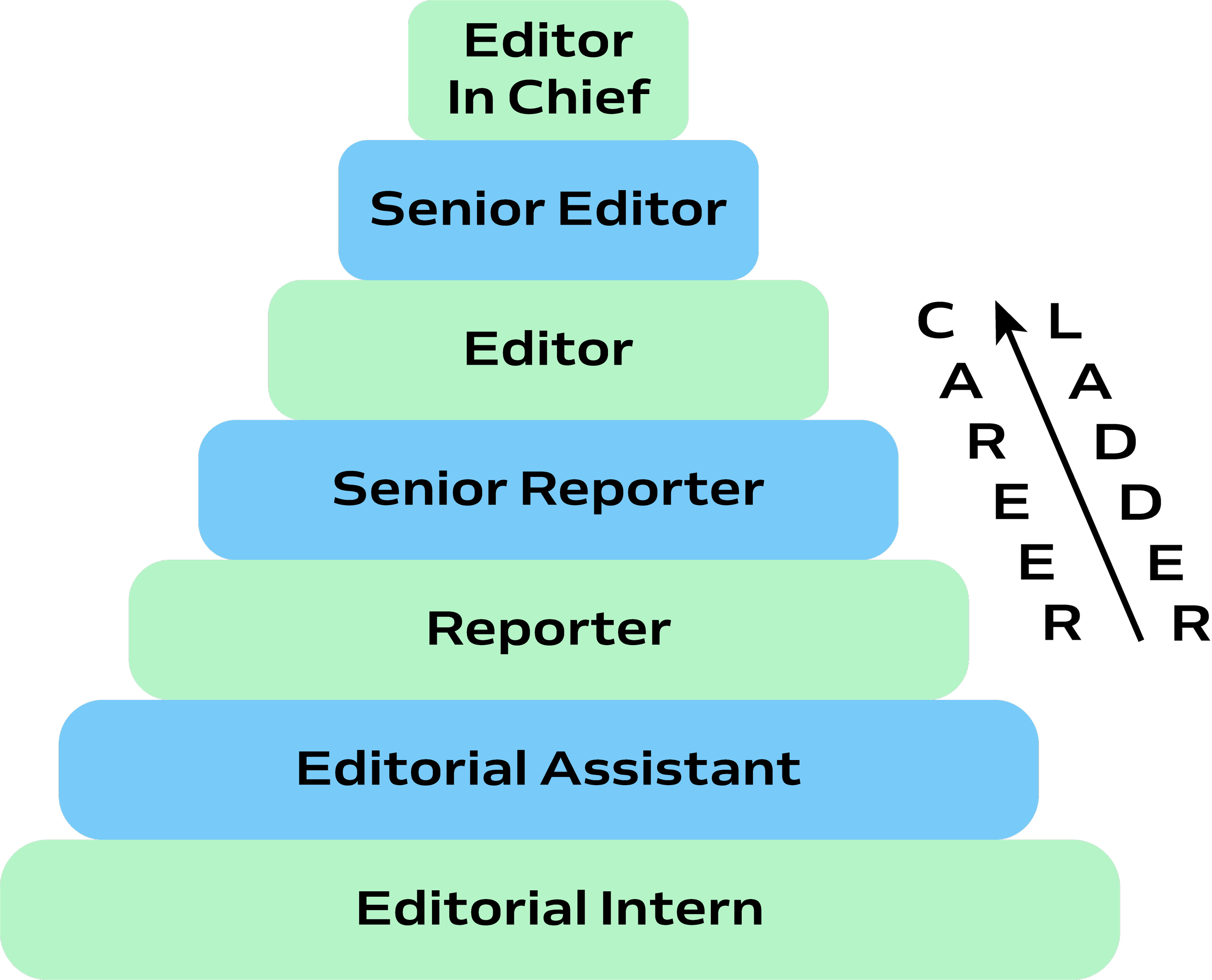
Behind the glossy pages of your favourite fashion magazine is a huge team of people who make it all happen. At the centre are fashion journalists, who write about the industry for newspapers, magazines, and online publications. Many fashion journalists choose a “beat” which is a sector of fashion that they’re a subject matter expert in. For example, they might cover sustainability, business, luxury, emerging designers, or streetwear. Fashion journalists can work in-house for a specific publication or be self-employed and write for several publications at once.
Because the fashion media we consume has largely moved from print to digital, it’s common for fashion journalists to write for online publications more than print publications. Fashion journalism is a highly competitive but exciting and rewarding career path.


Most editors start out their careers as editorial interns for a publication or agency. From here, the career ladder could look like this:
Editorial Assistant - Reporter - Senior Reporter - Editor - Senior Editor - Editor in Chief

CAREER HIGHLIGHT
Fashion journalists spend their days researching, interviewing people, pitching ideas to editors, and writing stories they’ve been commissioned. Their role might include travelling to attend events like fashion week, a conference, or a trade show, where they will report on new collections, materials, trends, industry news, and more.
A journalist may visit design studios or stores to conduct on-the-ground research. However, increasingly, the role of a fashion journalist is conducted online, with virtual meetings and interviews the norm.
Several universities have fashion communications or fashion journalism courses, but a general journalism degree (plus an interest in fashion) will also put you on the right path to becoming a fashion journalist. A passion for research and writing is important. Fashion journalists are curious, good communicators, analytical, have strong spelling and grammar, and are good listeners.
SKILLS NEEDED
Fashion journalists have to “sell” their ideas to editors in order to get commissioned, so it’s important to be confident and resilient.

Read any and all fashion publications, paying attention to how stories are formulated and discover the style of writing that resonates with you. Research fashion history and brush up on your knowledge of the industry. Practice developing your own tone of voice by blogging or writing your own fashion week reviews.
text text
Fashion Futures Job Roles
In this section we will go over
Different job roles in the fashion industry
Career ladders, so you can work your way to the top from entry level roles
Daily Tasks and career highlights
What should you study?
What skills do you need?
